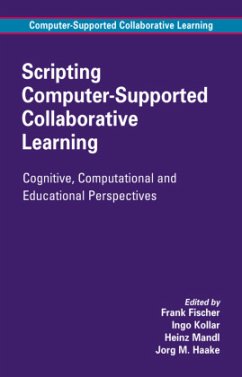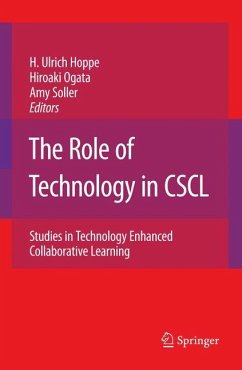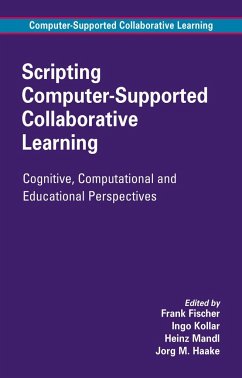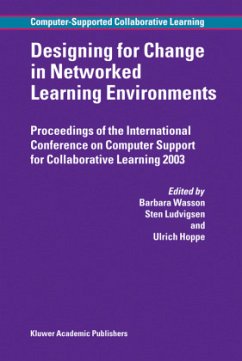
Barriers and Biases in Computer-Mediated Knowledge Communication
And How They May Be Overcome
Herausgegeben: Bromme, Rainer; Hesse, Friedrich W.; Spada, Hans

PAYBACK Punkte
57 °P sammeln!
We report a study of one aspect of the changing industrial landscape, the use of virtual team working in the supply chain. The supply chain is the group of companies that are involved in the design and manufacture and distribution of products, notably complex products such as cars. Supply chain partnerships often involve cross-company team working, and as members of such teams are rarely collocated, virtual team working supported by IT, offers considerable potential benefits. Companies hope that these technologies can be used to support distributed computer supported collaborative working for ...
We report a study of one aspect of the changing industrial landscape, the use of virtual team working in the supply chain. The supply chain is the group of companies that are involved in the design and manufacture and distribution of products, notably complex products such as cars. Supply chain partnerships often involve cross-company team working, and as members of such teams are rarely collocated, virtual team working supported by IT, offers considerable potential benefits. Companies hope that these technologies can be used to support distributed computer supported collaborative working for purposes such as concurrent engineering and it is this kind of virtual teaming which we decided to investigate. We believe that exploring how virtual teams communicate is an effective way of examining how well they are operating and identifying the impacts of the technologies on their interactions. In the workplace free and open communication is considered to be very important to organizations facing a rapidly changing business environment. Similarly free and equal communication among members has been reported to be important if genuine team working is to be implemented in the workplace, (Carletta et al., 1998). If organizations are to derive benefits such as innovative problem solving from virtual team working then such open communication seems desirable. Communications technologies such as videoconferencing, shared applications etc. clearly offer the possibilities of such communications among geographically distributed or virtual teams.












